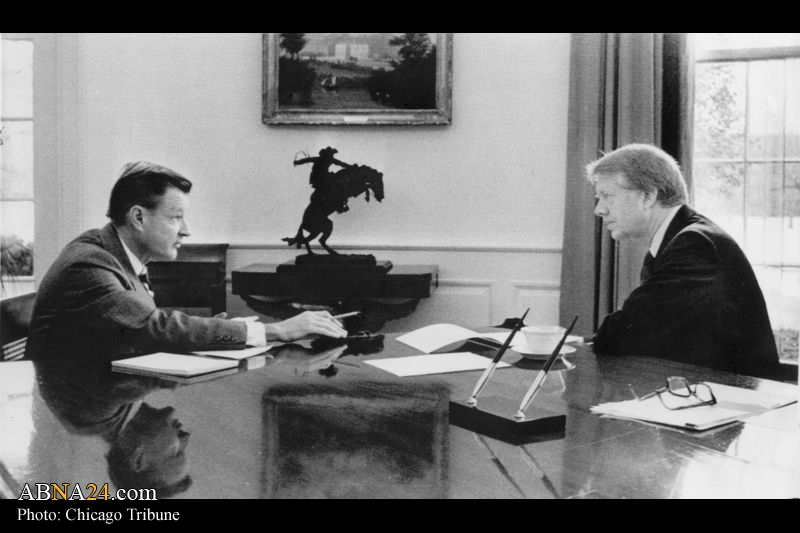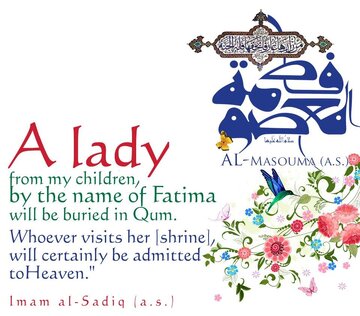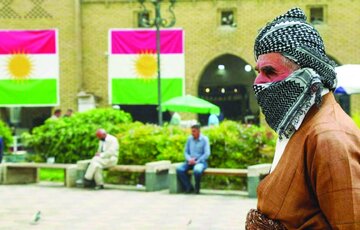AhlulBayt News Agency (ABNA): More than four decades have passed since the victory of the Islamic Revolution in Iran. In the meantime, many thinkers and experts have spoken about Iran or written articles. Due to their ignorance of social developments in Iran, some did not predict the course of events correctly, and some were able to reveal the realities of Iranian society well. Meanwhile, Zbigniew Brzezinski, the US National Security Adviser during Carter's presidency, was one of the most prominent theorists in academic circles, and despite his ability to analyze issues. He failed to understand the relationship between power and society. His thoughts and ideas were well received by political scholars in American society, and they held an important official position in the US government at the time leading up to the Islamic Revolution. In fact, the President's national security adviser to the United States plays an important role in the US government's policy, both towards the outside world and other governments. This position prompts us to review the views of this unique figure in American political circles about Iran during the Islamic Revolution.
Biggest Failure of Carter Administration:
Plan of famous American strategist against Iranian Revolution
16 February 2021 - 07:02
News ID: 1115849

Zbigniew Brzezinski, who became a national security adviser to the Carter administration because of his oversight of foreign policy, made significant gains in peace between the Arabs and the usurper regime of Israel, US-China relations, and Afghanistan. What plan did the famous strategist present against the Islamic Revolution in Iran?
Who is Brzezinski?
Zbigniew Brzezinski, known to his friends as "Zig", was born in March 1928 in Warsaw, Poland. He studied in Canada when was a young man and then went to the United States to earn his Ph.D. in political science from Harvard University. Brzezinski later joined the Democratic Party and supported Kennedy in the 1960 presidential election, but the thing that made him famous was his advice to the US government on the Cuban Missile Crisis and Cold War issues. His fame went so far that many consider him a figure in front of Henry Kissinger, the famous Republican strategist. He eventually became the national security adviser to the Carter administration because of his oversight of foreign policy issues. It was from this time that he attracted the attention of activists and political leaders in Iran.
Contrary to many people's beliefs, his achievements in this period are remarkable; from the signing of Camp David Peace between Egypt and Israel to the normalization of US relations with China and the deployment of Afghan forces against the former Soviet Union to withdraw from Afghanistan. His only major failure is the failure to formulate an effective and purposeful strategy to prevent the fall of the Pahlavi regime and the victory of the Islamic Revolution.
Duality in the governing body
Another view was based on that instead of unequivocally supporting the Shah, one should act more covertly, and while supporting the Shahanshahi regime and monarchy of Mohammad Reza Pahlavi, the Shah must be pressured to implement reforms and give concessions to the opposition. In fact, while defending the Pahlavi government in front of the Iranian People's Revolution, the group based its strategy on creating a relatively open political space; and reforms, albeit seemingly political, reduced the revolutionary atmosphere and revolt of the people. In a way, it prevented the collapse of the Pahlavi regime.
But about Brzezinski, he was opposed to any weakening of the Shah and believed that forcing the Shah to retreat from the opposition and giving them successive political concessions would shake the foundations of the Pahlavi regime. And in the end, it will lead to complete chaos and instability in Iran, which is contrary to US interests in Iran. He was saying that Mohammad Reza Pahlavi's position in the country is very strong and that Shah could eliminate his opponents whenever he wanted. But others, especially at the State Department, led by Cyrus Vance, and the country's ambassador to Tehran, Sullivan, had different views.
"My opponents were thinking that the solution to the problem in Iran was to reduce the power of the Shah and to start political reforms as soon as possible to establish a democratic government or a constitutional monarchy; They even sought to form a coalition group with the participation of political opposition forces" Brzezinski said. Brzezinski says it was based on this point of view that the State Department and Sullivan himself were opposing the transfer of anti-riot equipment to the government of Mohammad Reza Pahlavi. They believed that delivering these devices to the regime, greatly Reduces the likelihood of reaching an agreement and reconciliation between the opposition and the regime.
Brzezinski emphasized that, in my view, the government's policy of reconciling with the opposition and involving them in the government would have been right if it had been pursued years before and before the crisis of legitimacy of Mohammad Reza Pahlavi's government reached this stage. But now that this crisis has reached the stage of confrontation and the will of power, showing flexibility and compromise in the face of opposition will only result in the escalation of the crisis and the victory of the revolution. However, he did not have a comprehensive and specific strategy to prevent the fall of the Pahlavi regime and confront the Islamic Revolution.
The result
After all it must be said that the Carter administration was at a crossroads in the days leading up to the Islamic Revolution and could not make the right decision. According to Brzezinski, this government did not know whether According to its inner desire, it should fully support Mohammad Reza Pahlavi or listen to the opinions of the Ministry of Foreign Affairs and its ambassador in Tehran, Sullivan; Because Carter himself says that Mohammad Reza was submitted to the proposals that were written by our embassy. In addition, it seems that the US government in general and even strategists such as Brzezinski had underestimated the revolutionary power of the Iranian people and the mobilization of all groups and political forces in the country to overthrow the Shah and did not know that Iran has located on a one-way path. Thus, there were two strong reasons why the analysis and demands of persons like Brzezinski about the Iranian revolution were wrong.
Brzezinski himself confirms this failure in his book "Power and Moral Principles". "Iran was the biggest failure of the Carter administration," he said bluntly. Contrary to the Carter administration's victory in establishing peace between the Arabs and Israel and the normalization of relations with China and the firm US policy against the Soviet Union, which each of them is a major achievement for this administration, the fall of the Shah had strategic consequences for the United States and politically for Carter. According to Brzezinski, Carter became confused and hesitant in the debate between reason and the feelings and disagreements of his advisers, and was unable to make the right decision at the moment leading up to the Islamic Revolution of Iran.
Repeated mistakes
Of course, Carter's failures and Brzezinski's mistakes were not limited to this. A few months later, with the US embassy take over in Tehran; various plans were made for the release of the American hostages. One of these plans was to use military force, designed by Brzezinski himself. A plan that eventually became operational. And the United States sent Special Forces to Iran to free its hostages. These forces, who had secretly landed in the Tabas desert and were waiting for the operation order to go to Tehran and release the hostages, were caught in a sandstorm and as the result routed. The defeat ultimately led to Carter's election defeat, and he lost power in Washington in favor of his Republican rival. This mistake was repeated during the war, and Brzezinski supported Saddam's regime during the eight years of the imposed war. He believed that the Iraqi regime should be supported in order to stop the Iranian revolution; that is why he traveled to Iraq several times. But his calculations turned out to be wrong once again.
In the end, although Brzezinski was a great strategist and in many cases was able to help the US government , but not in the case of Iran. In fact, a misunderstanding of power relations in Iran in the midst of the revolution and the irreversibility of the revolution and underestimating the power of the people and the leadership of Imam Khomeini led to confusion, doubt and ultimately the mistake of the US government in decision making.




